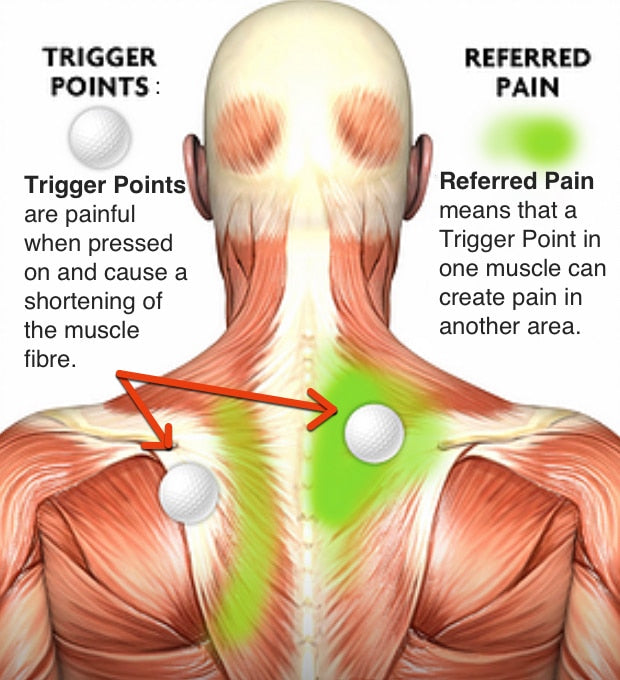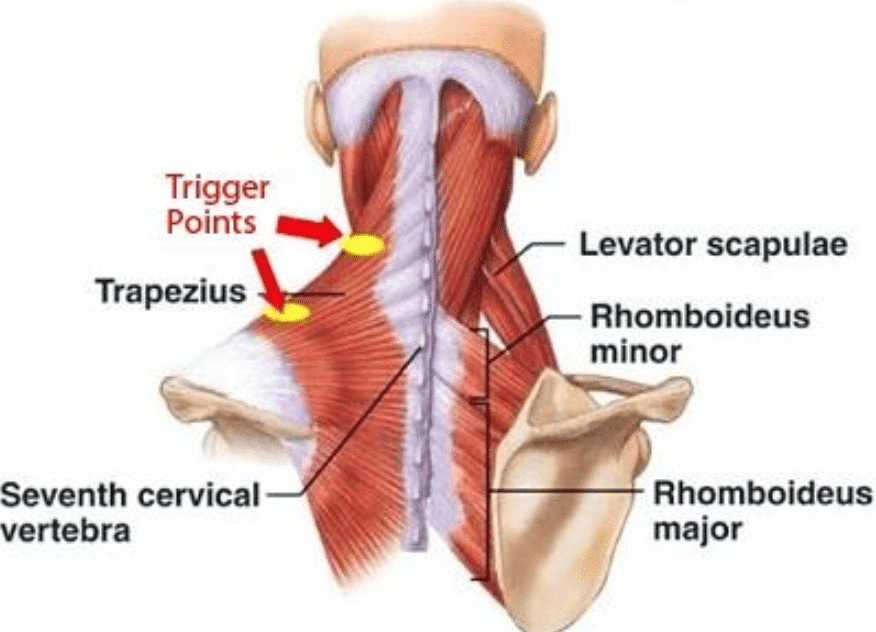Is That ‘Knot’ in Your Neck Really a ‘Knotted’ Muscle?
It may seem like a stupid question. Is that knot in our neck literally a “knotted” muscle? Why do we call them ‘knots’?
We’ve all had them … that muscle tightness and tension caused by the way we hunch over a computer or smartphone. Or maybe we bring them on when we become the weekend warrior who decides to play a sport we haven’t played for years.
AND then it happens… we wake up the next morning with that “knot” in your neck, back or shoulder.
Sometimes those knots seem to come when we aren’t doing much at ALL! Like while we are getting our Beauty Sleep? Is our pillow to blame?
Let’s look at what these knots and trigger points really are… and why they cause us so much discomfort.

Waking Up to Pain
We in the Pillow business like to call those muscle pains we wake up to as “Sleep Accidents” –caused by improper sleeping positions and postures. FACT: These “knots” are technically called “trigger points.”
Unlike a “muscle spasm” which is a very active contraction of the entire muscle, trigger points are a more specific small part of a muscle. Trigger points often “refer” pain to other parts of our bodies… sometimes quite far away. This referred pain is usually constant and can be mild to severe and usually a deep pain. This is confusing as we are unaware that the criminal is no where near the crime!
Common Example: That headache you might have that is really coming from a trigger point from your neck, of all places!
One can never assume the pain we feel is where the problem originates from. Similarly, we have all experienced the pain-in-our-ass that is “referred” from elsewhere.

Trigger Points Can Be as Elusive as Unicorns
These Knots in our muscles and/or Trigger points often do not hurt and it is interesting to note that we often don’t even notice them until someone pushes on the them. The patient is often surprised when a very tender tight spot is located (which they were unaware of) and is nowhere near where they are actually experiencing the pain. A very common experience for RMTs during their treatment sessions.
Where are Trigger Points Found?
Considering that ‘muscle’ is the largest organ in the human body and accounts for 50% of our weight (Some of us maybe a little less than others). We have about 400 muscles, all of which we can get “knots’ or “trigger points”. Along with the pain and referred pain they cause, there is also significant fall out of body dysfunction with restriction of movement and improper posture. This is life changing for many of us.
How do you know you have a Trigger Point?
Simply have someone press their thumb into that knot (the one you know is there) and you will quickly diagnose a trigger point. According to specialists in Cleveland Clinic’s Department of Pain Management, trigger points are commonly found in our trapezius muscles (those muscles that run from the base of our skull, neck down to middle of back and shoulder .. *see photo below)

If muscle is healthy it will feel relaxed and soft to the touch and not dense… even if you are “muscular”. A trigger point is very tender to pressure. On a microscopic level part of the muscle fiber is contracted into a small thickness and the rest of the muscle fiber is actually stretched quite thin. This is what we feel when we feel a “Knot”. These contracted muscle fibers are in fact not available for use which is why we need to rest / treat it before we can get back to the activities we love…. Like simply turning our heads!
Untying the Knots in our Muscles
According to many Pain Specialist, there are ways to relieve the pain and release the knots/ trigger points. Here are some important tips!
-
MASSAGE or Chiropractic : Rubbing the trigger point to loosen and release the tense muscle.
-
ANTI-INFLAMMATORIES: Helps reduce the muscle pain but take in moderation.
-
HEAT AND COLD: Heating Pads and Ice Packs are always helpful.
-
KEEP ACTIVE: It’s true what they say “use it or lose it” and muscles need to stay moving to recover. Start with gentle stretches and work up to increasing the activity.
-
RESEARCH THE CAUSE: Try to figure out what is causing the problem. Perhaps it is a repetitive activity, a poor sleeping position (look into a proper neck support pillow) or poor posture at your desk or computer. In fact some believe that emotional stress can cause trigger points/ muscle tension. Identify what’s “stressing out” your muscle.
-
PREVENTION: Make yourself aware of your body’s posture in all your activities including sleeping habits. If sleeping posture/ergonomics is a problem it may be time to invest in an ergonomic pillow that keeps the muscles properly supported while you sleep. The enVy pillow is one such pillow that is recommended by Surgeons, Physiotherapists, Chiropractors Massage Therapists and Dentists.
Take note of the headache, neck and jaw pain, tennis elbow, carpal tunnel syndrome, joint pain etc you feel. It may not be what it appears. As developers of a medical device chiropractic pillow (Medical Device by Health Canada and FDA compliant in USA) we have met many patients about to go into surgery for a variety of back, neck and carpal tunnel issues who learned that neck support on a proper pillow at night can change your “surgery plans”.
Do you have an unexplainable pain that could be tied to a knotted muscle or “trigger point”? Please contact us … as two nurses we’d love to discuss what may be missing in your treatment plan 🙂
www.envypillow.ca
info@envypillow.ca




